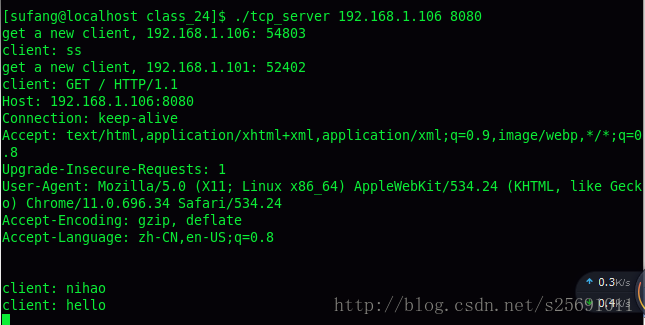linux网络编程/多线程多进程服务器与进程线程池
一、多进程服务器
1、服务器端代码:
#include2、客户端代码:
#include 服务器端运行指令:
./tcp_server 192.168.1.106 8080
运行结果:

二、多线程服务器
tcp_server服务器端的代码:
#include